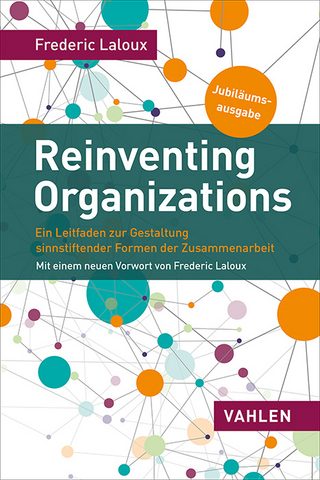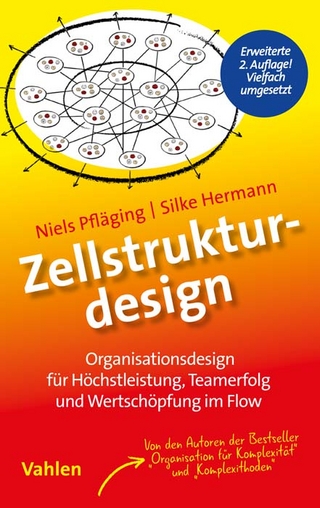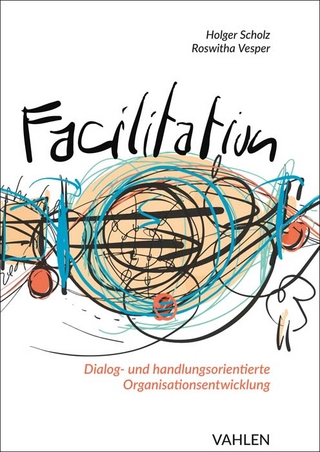
The Oxford Handbook of Phenomenologies and Organization Studies
Oxford University Press (Verlag)
978-0-19-286575-5 (ISBN)
Phenomenological approaches to Management and Organization Studies offer a means to problematize 'appearances' in the field, allowing us to 'see' things in a different light and uncover what is hidden from our consideration by our theoretical or ideological assumptions. This handbook aims at showing the unexpected richness and diversity of phenomenological and post-phenomenological thinkers such as Husserl, Heidegger, Merleau-Ponty, Arendt, or Scheler, as well as others belonging to the French new phenomenology (Marion, Henry) or the German neo-phenomenology (Schmitz). It also details the contributions of thinkers like Bachelard, Deleuze, or Foucault whose inscription and departures from phenomenology are illuminated. In this process, phenomenologies are historically, critically, and openly discussed by leading scholars while highlighting the interweaving between phenomenologies and other streams such as process studies or critical perspectives. Beyond a theoretical description, the chapters also show how phenomenologies and post-phenomenologies can help management and organization scholars and students to understand a huge variety of contemporary phenomena such as distributed collective activity, artificial intelligence, digitalization of organizational processes, remote work, financial markets and financial instruments, entrepreneurial events, cinematographic organizing of social media, issues of place and emplacement, commons and communalization processes and questions of embodiment and disembodiment at work.
François-Xavier de Vaujany is full professor of Management and Organization Studies at Université Paris Dauphine-PSL (DRM). His research deals with new ways of working and organizing and their relationships with digitality. He draws on process philosophy and hermeneutics to conduct in-depth qualitative research of entrepreneurial processes, cinematographic organizing, open science practices, and historical intertwining of management with cybernetics. Jeremy Aroles is a Senior Lecturer in Organisation Studies at the University of York. His research currently focuses on the exploration of new ways of working and the management of cultural institutions. Mar Pérezts is a Full Professor at OCE Research Center of Emlyon Business School (France). She pursues transversal, embodied, and meta-theoretical research on organizations, with a strong critical and philosophical focus, relying on qualitative and ethnographic methodologies.
Hartmut Rosa: Preface
François-Xavier de Vaujany, Jeremy Aroles, and Mar Pérezts: Phenomenologies and Organization Studies: Organizing Through and Beyond Appearances
Part I. Phenomenologies and Beyond: Origins, Extensions, and Discontinuities
1: Jean-Baptiste Fournier: Tracing Phenomenological Sensibilities in Continental and Post-Continental Philosophies
2: Elen Riot: Husserl: Reason and Emotions in Philosophy
3: Robin Holt: Heidegger, Organization, and Care
4: Michèle Charbonneau: Gaston Bachelard and the Phenomenology of the Imagination
5: François-Xavier de Vaujany: From Phenomenology to a Metaphysics of History: The Unfinished Odyssey of Merleau-Ponty
6: Erol Čopelj and Jack Reynolds: Phenomenology and the Multidimensionality of the Body
7: Paul Savage and Henrika Franck: The Self in the World: The Hermeneutic Phenomenology of Paul Ricoeur
8: Lucie Chartouny: Phenomenology and the Political Philosophy of Hannah Arendt
9: Sara Mandray: Experience as an Excess of Givenness: The Post-Metaphysical Phenomenology of Jean-Luc Marion
10: Eric Faÿ and Ghislain Deslandes: Extending and Discontinuing Phenomenology with Michel Henry
11: Aurélie Leclercq-Vandelannoitte: Foucault and Phenomenology, a Tense and Complex Relation: From Anti-Phenomenology to Post-Phenomenology
Part II. The Experience of Organizing: Embodiment, Robots, and Affects in a Digital World
12: Leo Bancou, François-Xavier de Vaujany, Mar Pérezts, and Jeremy Aroles: On the Way to Experience with the Phenomenological Venture of Management and Organization: A Literature Review
13: Jaana Parviainen and Anne Koski: 'In the Future, as Robots Become More Widespread': A Phenomenological Approach to Imaginary Technologies in Healthcare Organizations
14: Leah Tomkins: Max Scheler's Phenomenology of Personalism and Paradox: Implications for Leadership Relations
15: Silvia Gherardi: At the Crossroad of Phenomenology and Feminist New Materialism: A Diffractive Reading of Embodiment
16: Pierre Guillet de Monthoux, Matilda Dahl, and Jenny Helin: Bachelard's Backdoor to Happy Business School Phenomenology
17: Albane Grandazzi: Exploring the Role of Bodies and Gestures in Management with Merleau-Ponty
18: Mar Pérezts and Emmanouela Mandalaki: Queering Organizational Appearances Through Reclaiming the Erotic
19: Géraldine Paring: Animal Ontologies: Phenomenological Insights for Posthumanist Research
20: Antonio Strati: 'How about a hug?': Aesthetic of Organizational Experience and Phenomenologies
Part III. Events and Organizing: Acceleration, Disruptions, and Decentering of Management
21: Xavier Deroy: Is the Phenomenal Difference of the Entrepreneurial Event Opening on its Repetition?
22: François-Xavier de Vaujany: The Process of Depth: Temporality as Organization in Cinematographic Experience
23: Andrew Kirkpatrick: Organization as Autopoietic "Understanding"? Whitehead, Merleau-Ponty, and the Speculative Promise of a Process Phenomenology for MOS
24: Lucas Introna, Donncha Kavanagh, and Martin Brigham: What Silence Does: An Arendtian Analysis of Quaker Meeting Practices
25: Boukje Cnossen: Tuning Into Things: Sensing the Role of Place in an Emerging Alternative Urban Community
26: Sun Ning: Embodied Perception and the Schemed World: Merleau-Ponty and John Dewey
27: Abraham Olivier: Enframing and Transformation: Serequeberhan's African Phenomenological Approach
28: Genki Uemura: Phenomenology in Japan: A Brief History with Focus on the Reception in Applied Areas
Part IV. Togetherness, Memory, and Instruments: Algorithms, Gestures, and Marginality in Organizing
29: Wendelin Küpers: Organ-izing Embodied Practices of Common(-Ing) and Enfleshed Con-Vivialities: Perspectives on the Tragicomedy of the Commons
30: Lydia Jørgensen: It's All Method: Schmitz and Neo-Phenomenology
31: Mickael Peiro: Squatters and the Willing Suspension of Disbelief: Tales from the Royal Occupy
32: Marc Lenglet: Listening to the Sounds of the Algorithm: Some Remarks on Phenomenology and the Social Studies of Finance
33: Tadashi Uda: Producing Organizational Space: Buddhist Temples as Coworking Spaces
34: Juan Felipe Espinosa-Cristia and Nicolás Trujillo-Osorio: Organizing Research Excellence: A Pheno-Ethnomethodological Approach to Study Organizational Identity at Research Centres in the Global South
Part V. Conclusion
35: François-Xavier de Vaujany, Jeremy Aroles, and Mar Pérezts: Between Being and Becoming: Appearances and Subjectivities of Organizing
Haridimos Tsoukas: Afterword: Why and How Phenomenology Matters to Organizational Research
Tim Ingold: Postscript: An Anthropologist Lands in Phenomenology
| Erscheinungsdatum | 15.03.2023 |
|---|---|
| Reihe/Serie | Oxford Handbooks |
| Verlagsort | Oxford |
| Sprache | englisch |
| Maße | 175 x 252 mm |
| Gewicht | 1502 g |
| Themenwelt | Geisteswissenschaften ► Philosophie |
| Wirtschaft ► Betriebswirtschaft / Management ► Planung / Organisation | |
| Wirtschaft ► Betriebswirtschaft / Management ► Unternehmensführung / Management | |
| ISBN-10 | 0-19-286575-7 / 0192865757 |
| ISBN-13 | 978-0-19-286575-5 / 9780192865755 |
| Zustand | Neuware |
| Informationen gemäß Produktsicherheitsverordnung (GPSR) | |
| Haben Sie eine Frage zum Produkt? |
aus dem Bereich


